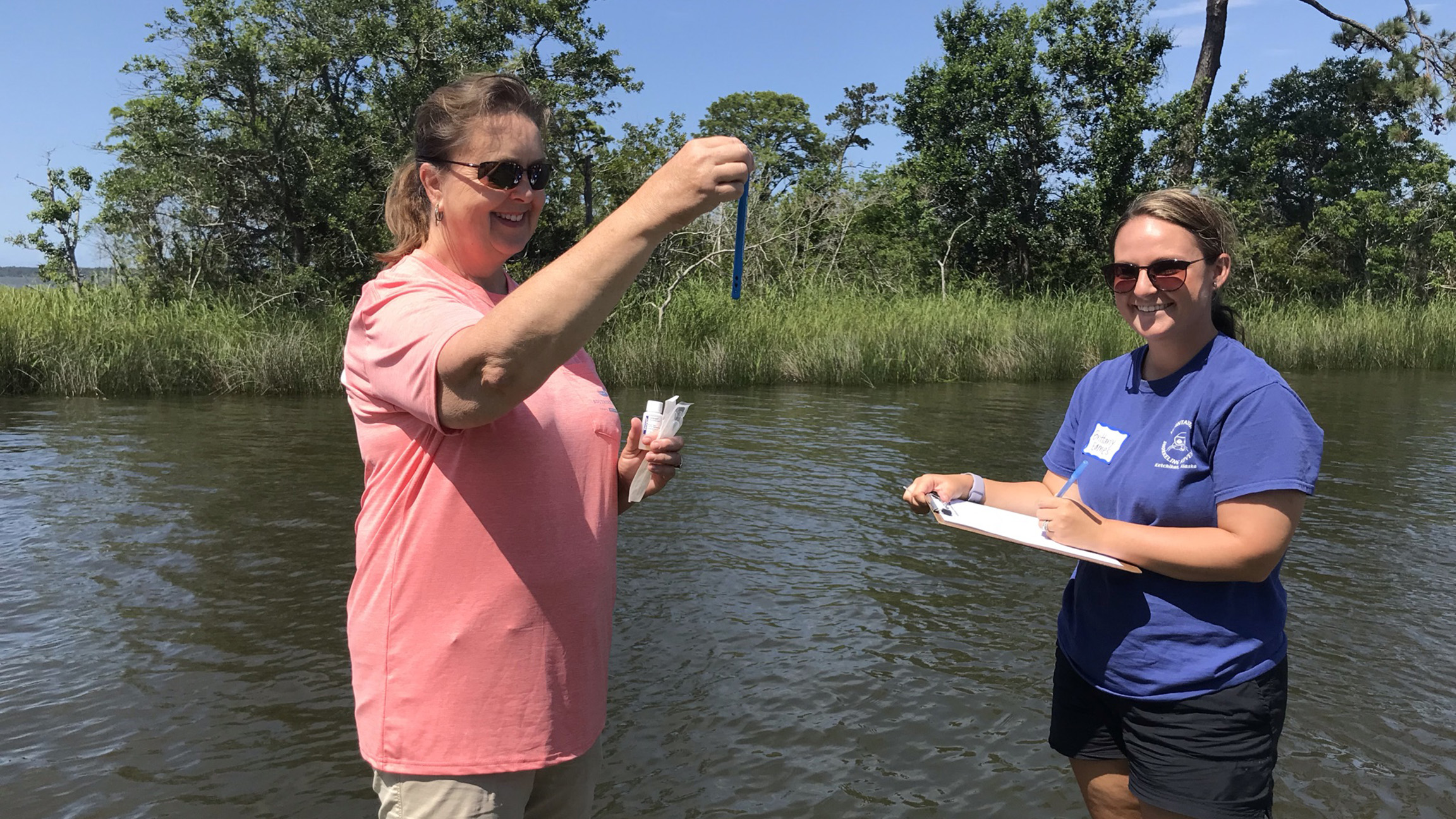by: Mona Dominguez
The Auburn University Water Resources Center recently celebrated the successful completion of the 4-H Alabama Water Watch three- year project, Exploring and Mitigating Pathogen Pollution in Our Waters. The NOAA Bays and Watershed Education Training (B-WET) Program funded the three-year project with the goal of building capacity within the 4-H Alabama Water Watch Program to provide educators with the training, materials, and support needed to engage students (ages 9 – 18) in coastal counties of Alabama, with Meaningful Watershed Educational Experiences focused on understanding, detecting, and mitigating pathogen pollution in local waters.
4-H AWW achieved the goal by implementing four major objectives 1) Development of new bacteriological monitoring focused curriculum, Exploring Pathogens in Our Waters (EOW) 2) Facilitation of professional development focused on EOW for a select group of educators. 3) Support of participating educators as they implement the project with students. 4) Facilitation of a Student Project Forum at the Weeks Bay National Estuarine Research Reserve (WBNERR).
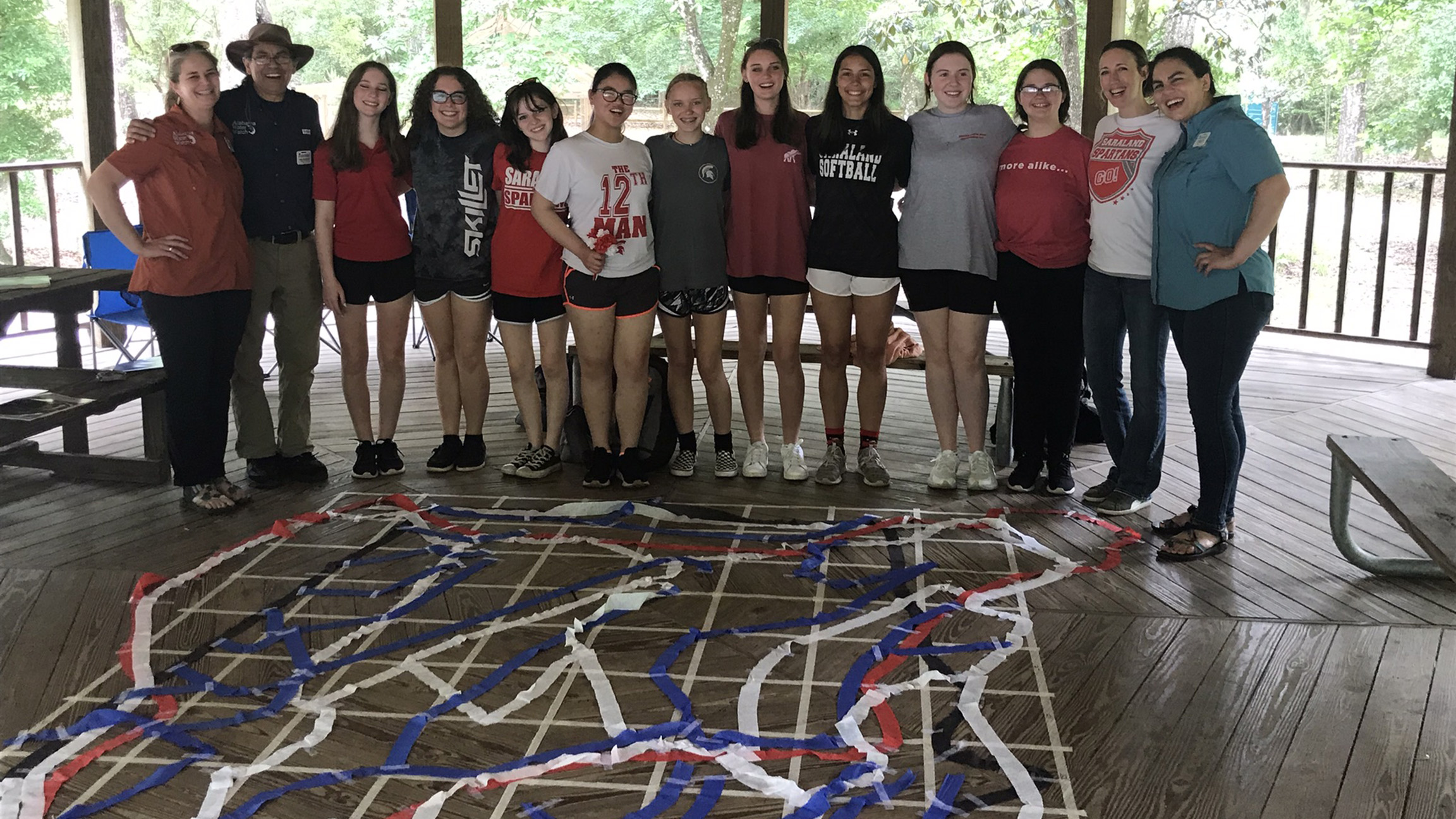
Saraland High School students participated in an activty called Alabama River Mapping with AWW Staff, Mona Dominguez, Sergio RuizCordova, and Carolina Ruiz. Photo Credit: Lisa Hurley
Project Curriculum
We designed Exploring Pathogen Pollution in Our Waters (EOW) as a companion guide to the Alabama Water Watch (AWW) Bacteriological Monitoring Manual. EOW includes nine lessons that present concepts for learning related to the water environment, pathogen pollution, bacteriological monitoring, data analysis, and watershed stewardship through hands-on, and when possible, outdoor learning. The final lesson provides educators with resources that they can use to guide students through the creation of their final projects, which can be a research style poster or an extension project or product (i.e., brochure, educational video, social media campaign) focused on their bacteriological monitoring findings.
The Curriculum is correlated to the 2015 Alabama Course of Study (ACOS) Science Standards for grades 4 – 7 and high school subjects of Environmental Science and Biology. Additionally, it is correlated to 2008 ACOS for Career and Technical Education Natural Resources . It is possible to list AWW certification on High School Transcripts.
Professional Development Training
In June 2021, 4–H AWW Staff conducted professional development for fifteen educators from six coastal Alabama counties. The training was comprised of two synchronous zoom sessions covering the curriculum, project, and expectations. Educators completed an online self-paced AWW Bacteriological Monitoring training. The training ended with a Field Day at WBNERR in Fairhope, AL during which educators conducted bacteriological monitoring of Weeks Bay.
The WBNERR was an ideal location for the Field Day. Weeks Bay Staff made a presentation that include information and history of the NERR as well as opportunities they offer for educators and students. Additionally, Weeks Bay NERR Staff led the group on a boat tour of Weeks Bay that included valuable information about the history of the watershed, unique flora and fauna of the area, and threats to watershed health. This activity was a wonderful way to emphasize the concept of “Loving They Downstream Neighbor,” which is AWW’s slogan meant to remind people to consider their downstream neighbors when they make decisions about land-use activities that could impact water quality.
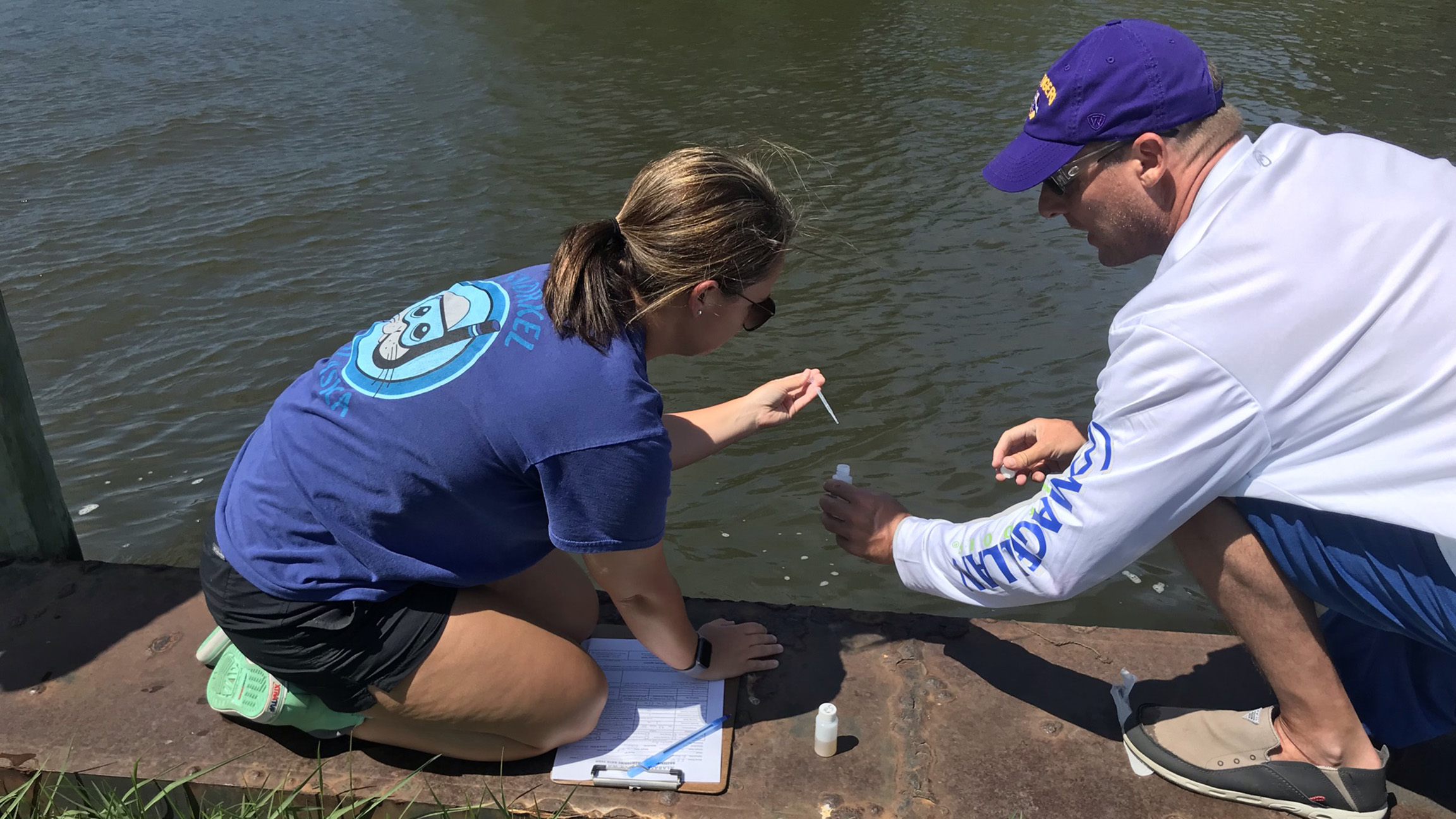
Educators collect a water sample from Weeks Bay. Photo Credit: Mona Dominguez
Project Outcomes
A total of 825 students participated in the project during the 2021-2022 school year. Around 75% of students were in high school biology, marine biology, environmental science, environmental management, and earth science classes (including AP, and Honors classes). Elementary and middle school students, including students with the Escambia County Gifted Program participated.
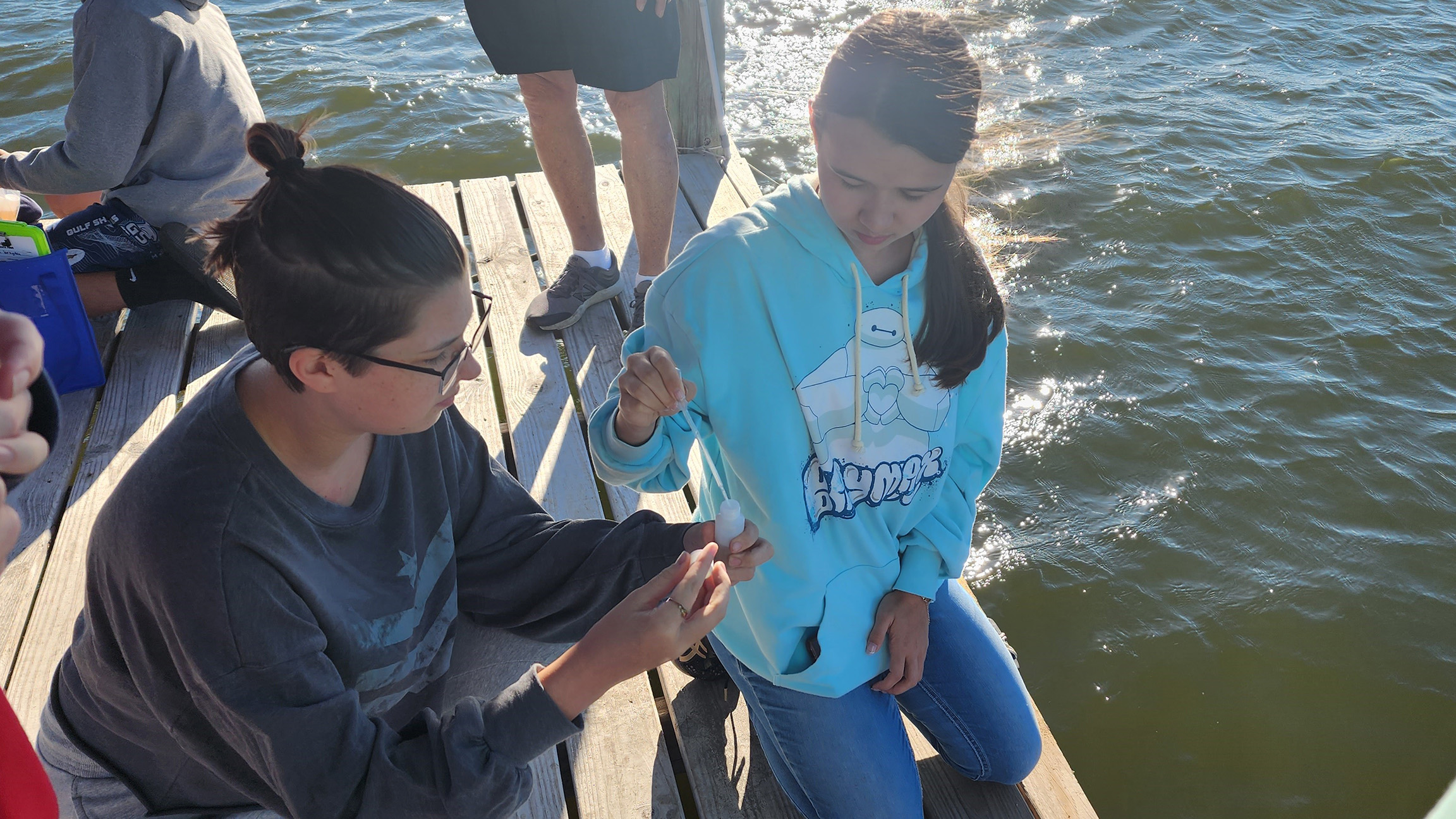
Gulf Shores High School Students collect a sample for bacteriological monitoring. Photo Credit: Krista Marcum
Student groups submitted around 40 bacteriological water data records to the AWW database; all of which are available on AWW public Water Data pages including the interactive map. The students incorporated their monitoring results into final projects that took the form of research style posters and extension/outreach projects or products.
Three student teams from Saraland High School participated in a Student Project Forum at Blakely State Park hosted by 4-H AWW where they presented their project posters and findings. During the Forum, they also went on a boat tour of the Mobile-Tensaw Delta and created a map of Alabama’s Rivers. Read more in the AWWareness Blog article, “Students Explore Pathogen Pollution in Our Waters and the Beauty of the Mobile-Tensaw Delta”.
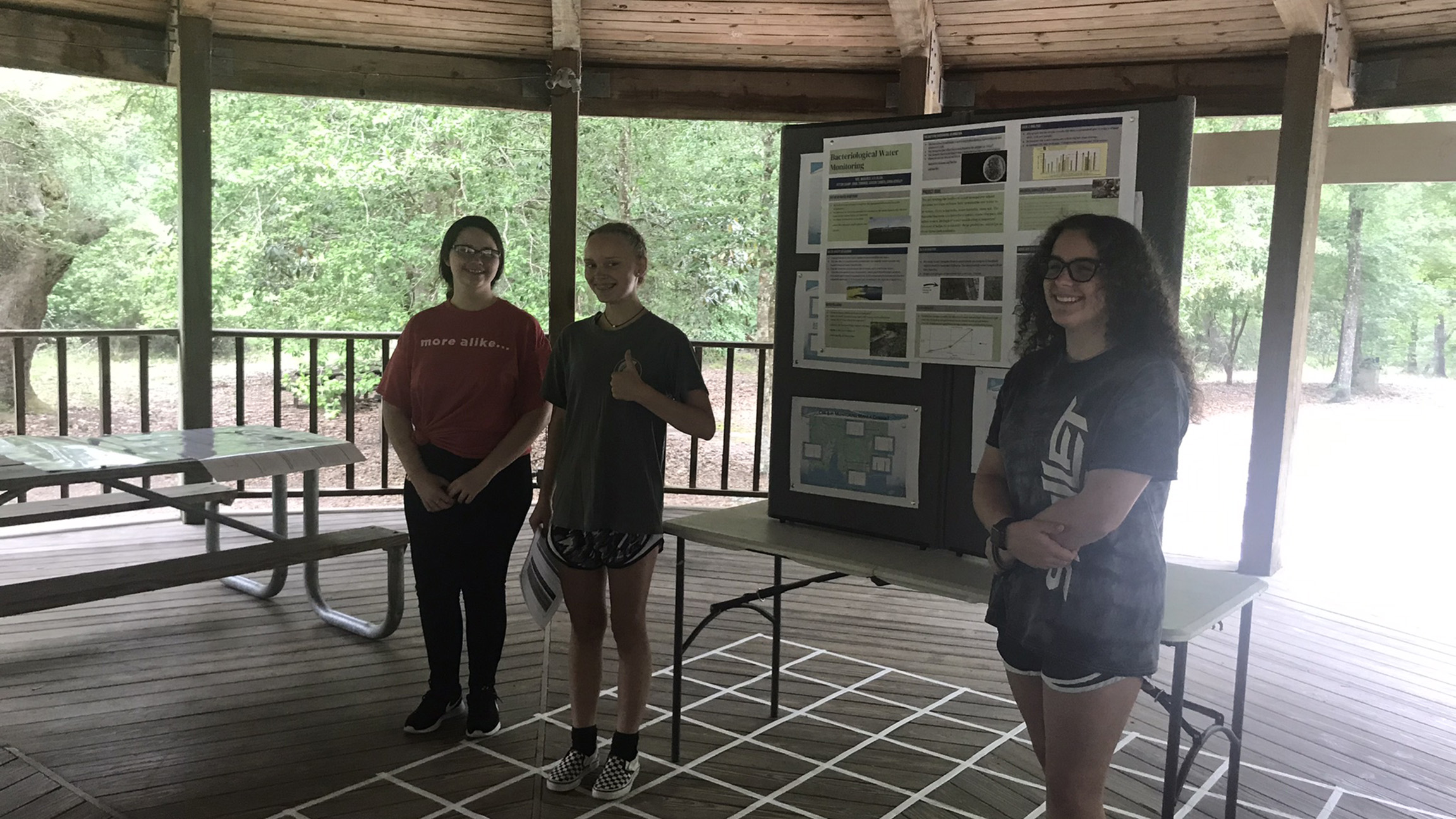
Saraland High School students present their project . Photo Credit: Mona Dominguez
Project Staff developed pre/post-tests with the goal of better understanding how student participation with the project influences their connection with water, knowledge and actions related to water, science inquiry skills, and science engagement. Overall, the pre and posttests results showed that student participation in the project had a positive impact on each of these areas. Their responses indicated that their ability to and likelihood of taking action in regard to water quality health increased.
One high school student responded in their own words on the posttest that they thought the most important thing they learned through the project, “wasn’t so much water testing, but it did give me slightly more awareness of myself and things I like to do. I also feel like the process brought me closer to my future career path and overall, it was a great experience that I was glad to be a part of.”
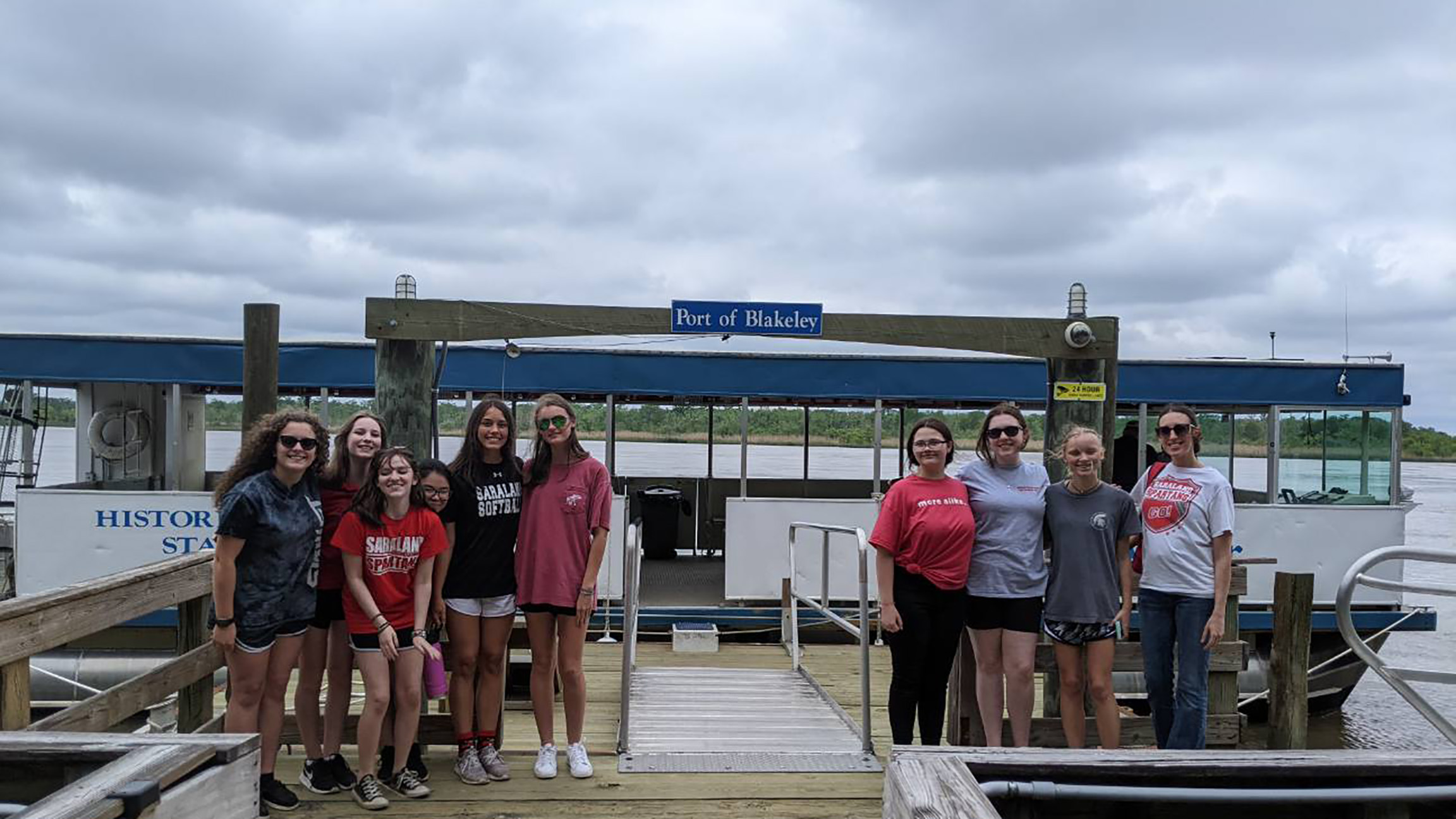
Saraland High School students, and teacher, Marcy Bragdon, following their boat tour of the Mobile Tensaw Delta. Photo Credit: Carolina Ruiz
Next Steps
In August 2022, 4-H AWW began a second phase of this project thanks to a second award from the NOAA B-WET Program. Phase II will expand project impacts to educators beyond the coastal region of Alabama, even including several Mississippi Educators through AWW’s partner program, Mississippi Watershed Stewards. We will begin recruiting a new cohort of educators to participate in a Professional Development training in June 2024.
If you have contacts with science teachers who you think might want to apply to be part of the project, please encourage them to contact the AWW office.

